Compositional Analysis – Understanding the composition of your waste material
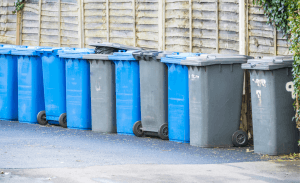
The composition of commercial and household waste is forever changing as our personal behaviours, consumption and recycling habits shift over time. In the last 18 months alone, as a result of the COVID pandemic, household waste has altered dramatically.
The widespread use of disposable facemasks and PPE has seen an increase in the levels of plastics entering our waste streams. Numerous lockdowns have affected kerbside collections and the way people dispose of and recycle their waste.
Changes to our waste stream can affect both the output of a material and the value of it at each stage of its journey, from household waste to output from a Waste to Energy plant. Not only does this affect Energy from Waste (EfW) facility operators, but it also has a knock-on effect for waste management companies, suppliers of waste and even local councils.
Understanding the Composition of Your Material
Through determining the composition of your waste material, you can gain vital insights into the different elements and contaminants within your commodity.
With these insights, you can build a reliable profile of your waste stream, helping protect your plant equipment, meet environmental regulations and be in a strong position to plan and monitor your waste handling activities. The best method of doing so is through a Waste Composition Analysis.
What is Waste Composition Analysis (WCA)?
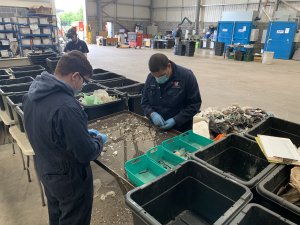
Waste Composition Analysis (WCA) is a study that provides information on the weight of materials that are in a given waste stream. This involves obtaining samples of these waste streams and sorting them into predefined categories which are then weighed.
Further tests can also be carried out on the materials to determine the specific size of materials, referred to as a Size Analysis. This information is crucial for the effective design of mechanical waste treatment facilities and monitoring the performance of mechanical waste treatment facilities.
Combined with a category analysis, this can also provide information on which materials are present for a range of size fractions.
Why is Waste Composition Analysis important?
As the UK pushes away from a Linear Economy and moves towards a Circular Economy through the reduction of waste to landfill, more and more waste is being recycled and the non-recyclables, often referred to as Municipal Solid Waste (MSW), can be used to generate power in an Energy from Waste (EfW) facility.
Through understanding the composition of waste, we can support each point in the journey from household to power plant, and even learn some key information on the recycling habits.
Local Authorities
Analysing the composition of waste streams is important for local authorities and councils. It can be useful in developing an understanding of the recycling and purchasing habits of local residents through quantifying the recyclable content of household waste.
A thorough compositional analysis can identify the different types of waste materials present, as well as spotlighting items of policy interest such as single-use plastics.
This can help councils support their Zero to Landfill strategy and provide valuable data for campaigns aimed at getting the general public to recycle more.
Waste Management Companies
It is vital for waste management companies to understand the benefits of compositional analysis, how this translates into the renewable and the added value this could potentially bring.
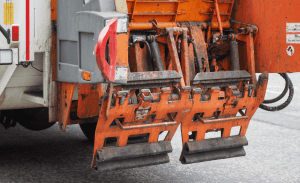
As the push for a Circular Economy is now a driving force behind the decision making within the waste management sector, understanding the composition of your waste will allow you to extract added value from the waste stream, converting your waste into a commodity.
With a high level of compositional data, you can characterise the materials within your waste stream to segregate those that can be prioritised for recycling, ensuring that you focus on the right mix of materials and help divert anything with further potential from ending up in landfill. This supports your recycling targets through increasing your recycling performance, helping deliver on your environmental commitments.
Waste to Energy Facilities
Just as it is important for us as humans to understand what it is we are putting into our bodies, it is important to understand what it is we are burning at our Energy Recovery Facilities (ERF).
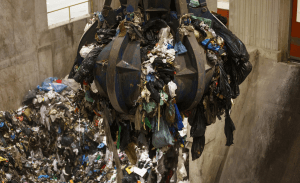 For an EfW or ERF to operate at its maximum capacity, it must be fed with fuel that meets the unique specifications of the facility. These operational limits are important, not only to ensure that the output of the facility is optimal, but also to maintain the plant equipment and influence the lifespan of the plant.
For an EfW or ERF to operate at its maximum capacity, it must be fed with fuel that meets the unique specifications of the facility. These operational limits are important, not only to ensure that the output of the facility is optimal, but also to maintain the plant equipment and influence the lifespan of the plant.
Through compositional analysis of the input material, operators can build a reliable profile of their waste and gain valuable insights into the levels of different elements and potentially harmful contaminants within their commodity.
Understanding the composition of the input material can also help to forecast the harmful emissions that will be released following incineration. By monitoring the impact of this process on the environment, you can keep within the regulations.
(IBA) Bottom Ash
The composition of your input material also affects the waste residue left behind following the incineration process.
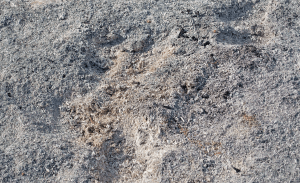
There are useful materials in the incinerator bottom ash (IBA) left behind following incineration such as ferrous metals, precious metals and other materials that could be further recycled and used as an aggregate in the construction industry.
Commercial and household waste streams often contain trace amounts of heavy non-ferrous metals which are sought after feedstock for smelters. In fact, recycling aluminium saves around 95% of the energy needed to make the metal from raw materials, so not only is it an opportunity for further revenue generation, but also helps to support a Circular Economy.
How can Alfred H Knight help with Waste Composition Analysis?
With strategically placed hubs across the UK, Alfred H Knight is able to provide accurate and reliable Waste Composition Analysis services with a swift turnaround time.
We are experts in alternative fuels testing, having provided services to the solid fuels sector for over 25 years. Our analysis services provide our clients with clear and accurate information on the composition of their waste streams and help them to monitor their waste handling and management.
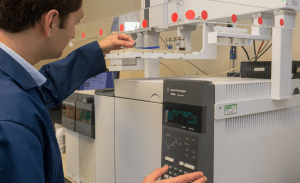 We are also capable of supporting members of the Renewable Energy Guarantees of Origin (REGO) scheme, helping businesses to determine their Fuel Mix Disclosure in order to meet their agreements.
We are also capable of supporting members of the Renewable Energy Guarantees of Origin (REGO) scheme, helping businesses to determine their Fuel Mix Disclosure in order to meet their agreements.
We have further information on Compositional Analysis of waste here, but if you would like to get in contact with a member of our team who can assist you with your individual needs, complete the quick and easy form below and we will be in touch as soon as possible.